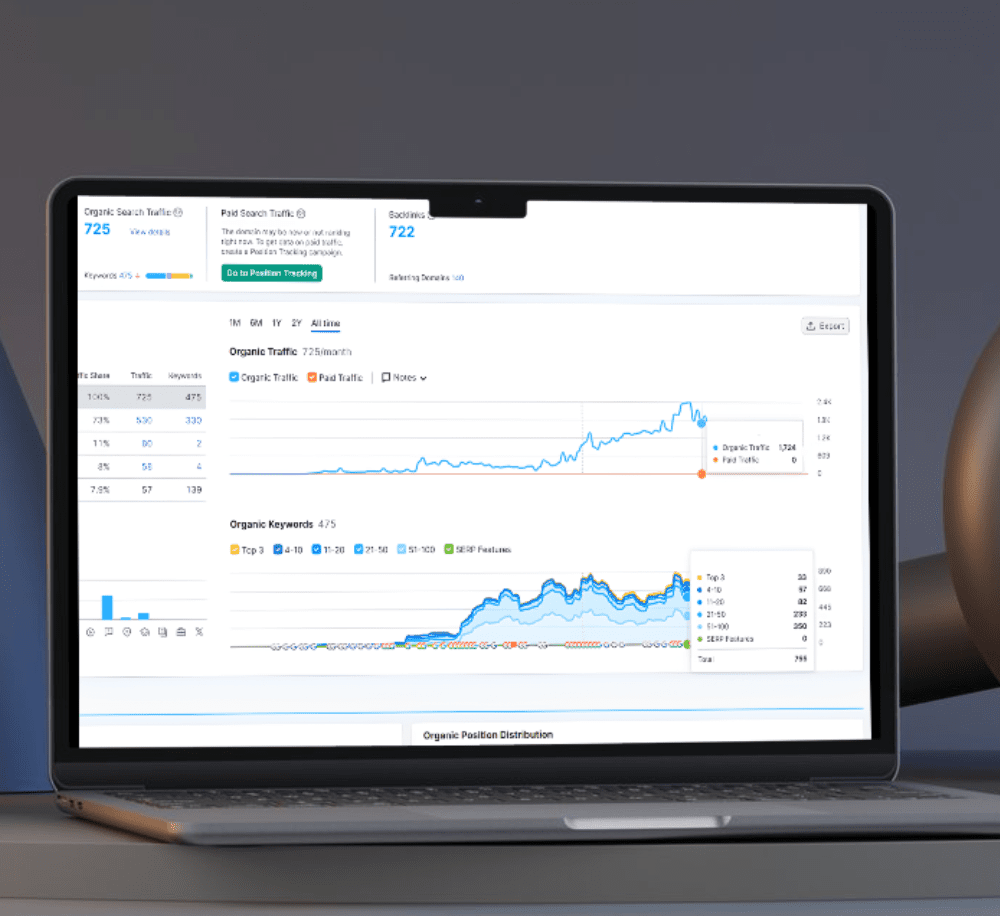Introduction to Online Reputation Management
In the digital age, online reputation management has emerged as a vital component for businesses across all sectors, and the construction industry is no exception. At its core, online reputation management involves actively shaping and maintaining the public perception of a business through various online platforms. For construction companies, this can significantly impact their ability to attract new clients and retain existing ones. One of the most influential platforms in this regard is Google Reviews.
Google Reviews serve as a virtual word-of-mouth, providing potential clients with firsthand insights into the experiences of previous customers. When considering hiring a construction company, many clients turn to these reviews to gauge reliability, quality of work, and customer satisfaction. Positive reviews can bolster a company’s reputation, making it more appealing to prospective clients. Conversely, negative reviews can deter potential clients and damage the company’s credibility.
The importance of Google Reviews in the construction industry cannot be overstated. They not only enhance visibility on search engines but also build trust and credibility. A well-managed online reputation, highlighted by positive reviews, can set a construction company apart from its competitors. Therefore, it is crucial for construction companies to actively engage in reputation management practices to ensure that their online presence accurately reflects the quality of their work and their commitment to customer satisfaction.
Effective reputation management involves more than just accumulating positive reviews. It also includes addressing negative feedback constructively and transparently. By doing so, construction companies demonstrate their dedication to continuous improvement and customer service. This proactive approach can turn potentially damaging feedback into an opportunity for growth and enhanced client trust.
In the following sections, we will delve deeper into the strategies for mastering online reputation management, specifically through the lens of Google Reviews, to help construction companies build and maintain a positive online presence.
Why Google Reviews Matter for Construction Companies
In the digital age, the reputation of a construction company is significantly influenced by its online presence, particularly through platforms like Google Reviews. For companies in the construction industry, positive reviews can dramatically enhance trust and credibility among potential clients. When homeowners or businesses search for construction services, they often turn to Google Reviews to gauge the reliability and quality of a company. A plethora of positive reviews can act as strong endorsements, making it easier to secure new projects and retain existing clients.
Conversely, negative reviews can have a detrimental impact. Prospective clients may be deterred by poor feedback, fearing they might experience similar issues. This highlights the importance of not just accumulating positive reviews but also actively managing and responding to negative feedback in a constructive manner. Effective handling of criticism can mitigate damage and even turn a negative perception into a positive one, showcasing the company’s commitment to client satisfaction and continuous improvement.
Statistics underscore the significance of Google Reviews in the construction industry. According to a study by BrightLocal, 87% of consumers read online reviews for local businesses, including those in construction, before making a decision. Moreover, businesses with a high average rating are more likely to attract inquiries and project bids. In a competitive field, maintaining a strong online reputation can be a decisive factor in winning contracts.
Case studies further illustrate this point. For instance, a mid-sized construction company saw a 30% increase in client inquiries after improving their average Google Review rating from 3.5 to 4.5 stars. This improvement was achieved by actively encouraging satisfied clients to leave positive reviews and addressing any issues raised in negative feedback. The result was not only increased business but also enhanced client loyalty and a stronger market position.
In summary, Google Reviews play a critical role in shaping the reputation of construction companies. Positive reviews build trust and attract new clients, while effective management of negative feedback can prevent potential business losses. Therefore, mastering online reputation management through Google Reviews is essential for sustained success in the construction industry.
Strategies to Encourage Positive Reviews
In the competitive landscape of the construction industry, cultivating a robust online reputation is paramount. One of the most effective ways to achieve this is by encouraging clients to leave positive reviews on platforms like Google. Here are several strategies that construction companies can employ to enhance their reputation management efforts.
Firstly, timing is crucial. Asking for reviews at the end of a project, when the client’s satisfaction is at its peak, can significantly boost the likelihood of receiving positive feedback. A well-timed request can make clients feel valued and appreciated, prompting them to share their positive experiences.
Another essential strategy involves providing exceptional customer service throughout the project. By exceeding client expectations and maintaining open, transparent communication, construction companies can foster strong relationships that naturally lead to positive reviews. Satisfied clients are often more than willing to share their experiences online when they feel they have received outstanding service.
Follow-up emails are also a powerful tool in reputation management. After completing a project, sending a polite and personalized email to the client, thanking them for their business and requesting a review, can be highly effective. Including a direct link to the Google Review page in the email can simplify the process, making it easier for clients to leave their feedback.
Additionally, construction companies can create printed materials or digital guides that walk clients through the review process. This can be particularly helpful for clients who may not be familiar with leaving reviews online. A step-by-step guide can reduce any friction and encourage more clients to share their positive experiences.
Lastly, incentivizing reviews can also be an effective tactic, provided it is done ethically. Offering small tokens of appreciation, such as a discount on future services or a gift card, can motivate clients to take the time to leave a review without compromising the authenticity of their feedback.
By implementing these strategies, construction companies can significantly enhance their online reputation, leveraging positive reviews to attract new clients and maintain a competitive edge in the market.
Handling Negative Feedback Effectively
In the construction industry, managing your online reputation is paramount, and Google reviews play a crucial role in shaping public perception. Encountering negative feedback is inevitable, but how you handle these reviews can significantly impact your reputation. Responding to negative reviews professionally and promptly is essential to demonstrate your commitment to customer satisfaction.
When addressing complaints, the first step is to acknowledge the issue raised by the customer. A simple recognition of their experience can go a long way in showing empathy and understanding. For instance, you might begin your response with, “Thank you for bringing this to our attention. We are sorry to hear about your experience.”
Next, if the situation warrants it, offer a genuine apology. This does not necessarily mean admitting fault, but rather expressing regret that the customer had a negative experience. An apology can defuse tension and show that you value their feedback.
Providing a solution or compensation is the third critical step. Clearly outline the actions you will take to rectify the issue, whether it involves redoing work, offering a discount, or providing another form of compensation. Make sure your proposed solution is specific and actionable. For example, “We would like to offer you a complimentary follow-up service to address the concerns you have mentioned.”
Importantly, maintain a courteous and professional tone throughout your response. Avoid defensive or confrontational language, as this could escalate the situation and further damage your reputation.
Lastly, see negative feedback as an opportunity to turn a dissatisfied customer into a loyal one. By showing that you are willing to make amends and improve, you can transform a negative experience into a positive one. This not only helps in retaining the customer but also demonstrates to potential clients that your construction company is dedicated to high standards and customer satisfaction.
Monitoring Your Online Reputation
Effective monitoring of your company’s online reputation is a crucial aspect of reputation management, particularly in the construction industry. It begins with setting up tools that can help you stay informed about what is being said about your business online. Google Alerts is a free and straightforward tool that can notify you whenever your company is mentioned on the web. By setting up alerts for your business name and related keywords, you can receive real-time updates, enabling you to respond promptly to both positive and negative feedback.
For a more comprehensive approach, reputation management software can be invaluable. These specialized tools not only track mentions of your business across various platforms but also analyze sentiment and provide detailed reports. This data can offer insights into how your company is perceived, helping you identify areas for improvement and strategies for maintaining a positive image.
Regularly checking your Google Reviews page is another essential practice. Google Reviews often serve as the first point of contact for potential clients, making it vital to stay on top of the feedback you receive. A proactive approach in monitoring reviews can help you quickly address any issues that arise. Responding to negative reviews in a constructive and professional manner can mitigate potential damage and demonstrate your commitment to customer satisfaction. On the other hand, acknowledging positive reviews can reinforce good relationships and encourage more clients to share their positive experiences.
Being vigilant in monitoring your online reputation allows you to maintain control over your brand’s image. By using a combination of Google Alerts, reputation management software, and regular checks of your Google Reviews, you can ensure that you are aware of and can promptly address any issues. This proactive stance not only helps in handling negative feedback but also in fostering a positive online presence, ultimately contributing to the success of your construction company.
Leveraging Positive Reviews in Marketing
In the construction industry, reputation management is paramount, and leveraging positive reviews can significantly enhance your marketing efforts. One effective strategy is to showcase these reviews directly on your company website. By creating a dedicated testimonial section, you provide prospective clients with real-life examples of satisfied customers, which can build trust and credibility. Moreover, integrating Google reviews into your website can also improve your SEO, making it easier for potential clients to find you through search engines.
Social media platforms offer another powerful avenue for sharing positive feedback. Regularly posting customer testimonials on platforms like Facebook, LinkedIn, and Instagram can help you reach a broader audience. When sharing these reviews, consider adding visuals such as photos or videos of completed projects to make the posts more engaging. This not only highlights your company’s expertise but also fosters a sense of community and trust among your followers.
Including positive reviews in your marketing materials, such as brochures, flyers, and email campaigns, can also be highly effective. When potential clients see consistent positive feedback across different channels, it reinforces your company’s reliability and quality of work. Highlighting specific aspects of your service that customers have praised can also help to address any potential concerns that new clients might have.
Building a robust portfolio of positive reviews is an ongoing process. Encourage satisfied clients to leave reviews on Google, which can further enhance your online reputation. Responding to these reviews, whether positive or negative, shows that you value customer feedback and are committed to maintaining high standards. Handling negative feedback with professionalism can also turn a potential setback into an opportunity to demonstrate your company’s commitment to improvement.
Incorporating these strategies into your marketing plan can help attract new clients, retain existing ones, and ultimately, strengthen your position in the competitive construction industry. By leveraging positive reviews, you not only enhance your online presence but also build a trustworthy brand that clients can rely on.
Building a Culture of Excellence
Creating a company culture that prioritizes customer satisfaction and quality work is essential in the construction industry. This culture not only fosters a strong reputation but also naturally leads to more positive reviews on platforms like Google. To build such a culture, it is important to instill a sense of pride and responsibility in every employee. When employees feel valued and understand the importance of their contributions, they are more likely to deliver exceptional service consistently.
Training programs should emphasize the significance of customer interactions and the impact of their work on the company’s reputation. Employees should be educated on how to handle customer feedback, both positive and negative, with professionalism and a focus on resolution. Regular workshops and seminars can help reinforce these principles, ensuring that every team member is aligned with the company’s core values.
Encouraging employees to take pride in their work involves recognizing and rewarding their achievements. Acknowledging exceptional performance not only boosts morale but also sets a benchmark for others to aspire to. Implementing an internal reward system can motivate employees to go above and beyond in their roles, contributing to a culture of excellence.
The long-term benefits of a strong, positive company culture are manifold. A company known for its commitment to quality and customer satisfaction is more likely to attract and retain clients. Positive reviews will follow organically when customers experience consistent, high-quality service. These reviews play a critical role in online reputation management, influencing potential clients’ perceptions and decisions.
Ultimately, a culture of excellence in the construction industry is the cornerstone of a thriving business. By prioritizing customer satisfaction and quality work, companies can ensure a steady stream of positive reviews, solidify their reputation, and achieve long-term success.
Conclusion and Next Steps
In navigating the complexities of the construction industry, effective reputation management stands as a cornerstone of success. As discussed, handling Google reviews proficiently can significantly impact your company’s credibility and client trust. By actively seeking positive reviews and addressing negative feedback constructively, you can cultivate a robust online presence.
Implementing the strategies outlined—such as soliciting positive reviews from satisfied clients, promptly responding to feedback, and maintaining transparency—will help you manage and enhance your online reputation. Remember, each review is an opportunity to showcase your company’s commitment to quality and customer satisfaction.
Monitoring your progress is equally critical. Utilize tools like Google Alerts, ReviewTrackers, and Hootsuite to stay informed about your online reputation. These resources can provide insights and analytics to refine your approach continuously.
To delve deeper into reputation management, consider exploring further resources such as “The Ultimate Guide to Google Reviews for Businesses” or “Reputation Management in the Digital Age.” These can offer additional strategies and case studies relevant to your industry.
We encourage you to take proactive steps today. Start by implementing the discussed tactics and observing their impact on your business. Engage with your clients, and don’t hesitate to share your experiences or pose questions in the comments section below. Your journey towards mastering online reputation management begins now.




